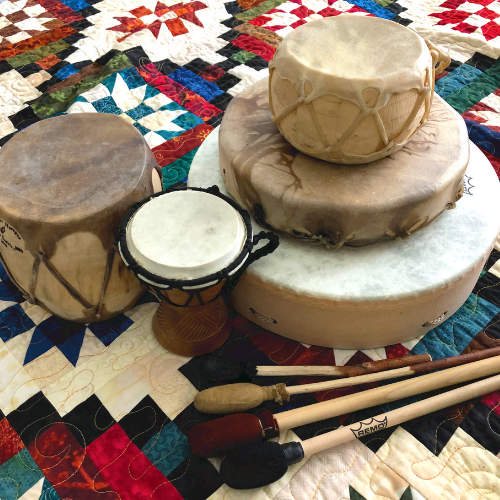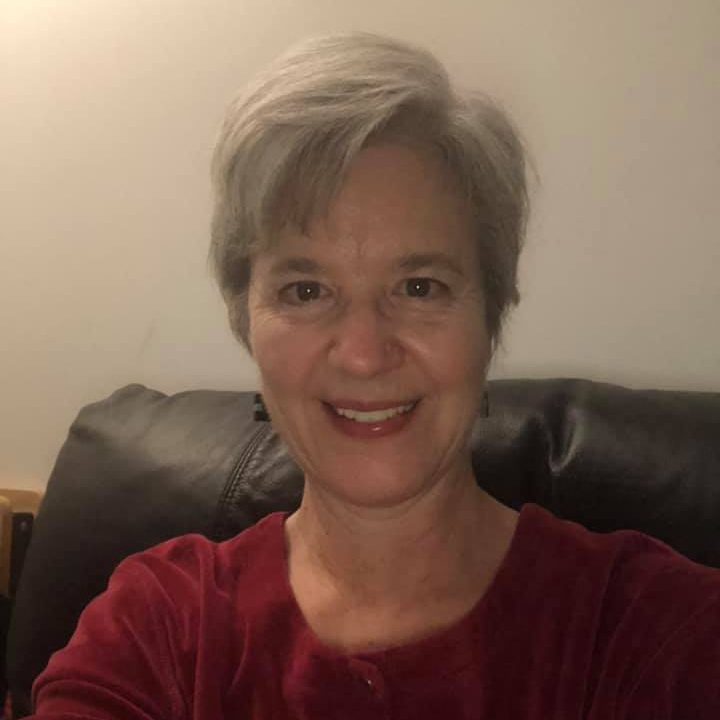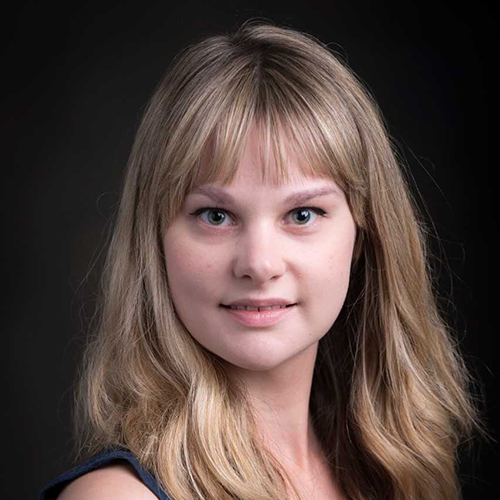Rhythmic Cognitive Restructuring

In cultures from ancient to modern times, people have created and played drums to reflect and connect with the rhythms of our lives and the heartbeat of Mother Earth; to communicate meaningful messages and music. Canada’s First Nations and most every immigrant group that’s come to Canada use drumming as part of rituals and ceremonies to unite people seeking common goals through shared expression.
The significance of drumming resonates in recognizing the breadth of Canadian culture. This Summer Institute aims to include people from a wide range of ages, backgrounds, and ethnicities all meeting up to play and say messages that are meaningful in modern Canadian context, more memorable when put to a beat in which all can participate.
Self-Management Techniques
This unique course will prepare participants of all levels of experience to explore rhythmic applications of widely used self-management techniques, to include:
- Breathing with Relaxed Focus
- Thinking more Positively
- Finding our Rhythms
![]()
Free hand drum to the first 15 registrants!
Session Descriptions
Register for one, two, or all three sessions!
Session 1: Tuesday, June 8
- Self-Management Technique: Breathing with Relaxed Focus
- Cultural Perspective: Indigenous American & Aboriginal Australian
Session 2: Tuesday, June 15
- Self-Management Technique: Thinking More Positively
- Cultural Perspective: African
Session 3: Tuesday, June 22
- Self-Management Technique: Finding our Rhythms
- Cultural Perspective: Asian
Key Learning Objectives:
- Students will engage in participatory activities including their own choice or combination among spoken word, drummed rhythms, and subtle movement with class members.
- Participants will say and play messages crafted to promote self-management skills by inviting and reminding ourselves to Relax, Think Positive, and Pay Attention to the Rhythms of Our Lives.
- Students will find or design a pattern (or patterns) of beats, sounds, and/or gestures that expresses an individual contribution to polyrhythms emerging from classroom interaction and community engagement.
- Students will be able to describe at least three ways in which various cultures incorporate mindful expression and rhythmic movement into therapeutic processes and healing rituals.
- Students will be able to state at least three ways in which the concepts and skills they learn in this class can be applied in their own work and their own lives.

Dr. Cynthia Glidden-Tracey
A counselling psychologist by day and world music enthusiast by night, Dr. Glidden-Tracey enjoys sharing concepts and techniques for enhancing well-being, addressing human conflicts, and improving learning, communication, and motivation to change.
She is developing a method, using insights from explorations of both psychology and cultural variations in musical expression, that combines cognitive restructuring with rhythmic reinforcement with hopes of strengthening clients’ memories and motivations to use the positive messages they learn to tell themselves in counselling.
See full bio for Dr. Glidden-Tracey: ecps.educ.ubc.ca/person/cynthia-glidden-tracey.

Brittany Lasanen
I’m a Counselling Psychology graduate student at UBC and currently work as a practicum intern at Lavender Counselling in Langley. I have used cognitive therapy techniques with clients in clinic and had the privilege of experiencing Dr. Glidden-Tracey’s rhythmic cognitive restructuring in my first-year counselling course. I appreciate how integrating music with therapeutic techniques can make them more meaningful and memorable.

Sara Pun
Sara is a professional music therapist and counselling psychology student at UBC. She believes in the power of music and is interested in blending her two passions of music and counselling together. Sara started playing piano at the age of five and since then has learned to play the clarinet, guitar, Japanese taiko drums, Balinese gamelan, and sings. A lover of world music, one of her artistic highlights includes spending a summer in Bali learning about their music, dance, and culture. She has worked with a wide range of populations, including people with disabilities, autism, and dementia. Her future work will include working with students, healthcare workers, and others who are curious about learning the possibilities music can bring in our everyday lives.
You are welcome to register for any single session, two sessions of your choice or all three!
Dates: June 8, 15 & 22, 2021
Time: 2-5pm PDT
Format: Online through Zoom
Registration & Fees
-
- Registration deadline is the Friday prior to each session; Friday June 4, Friday, June 11 & Friday, June 18.
Non-Credit Registration & Fees
-
- Non-Credit Participation Fee: $75 per individual session or $225 for all three
- Full payment is required with your online registration in order to reserve your space. We accept payment by credit card or debit card. Please note that should UBC cancel the course, a full refund will be issued.FAQs: Review the FAQs for Non-Credit Course Registration.
Want to keep the drumming going?
Join other Canadians on July 1 for a Canada Day Drumming Celebration (CDD) including Guiness Book of Records attempt. Watch the 2019 and 2020 highlights! Learn more & register now!
 |
This program is offered by the Department of Educational & Counselling Psychology, and Special Education. Learn more about ECPS programs. |